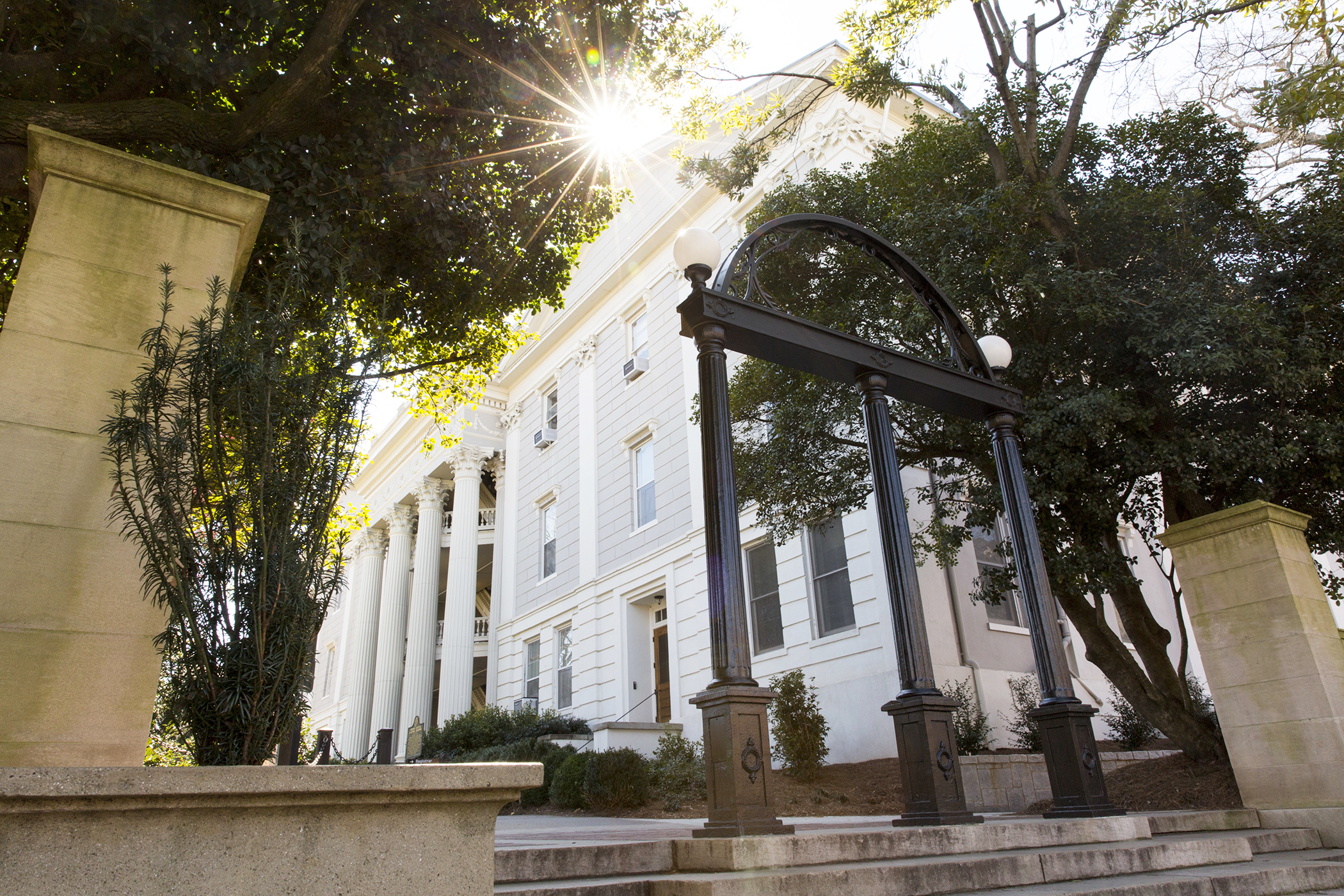The University of Georgia held fast at No. 16 in U.S. News & World Report’s 2023 ranking of the best public universities in the nation, marking the seventh consecutive year that UGA has placed in the top 20.
“This outstanding news is another clear sign that the University of Georgia is solidifying its position among the very best public research universities in America,” said President Jere W. Morehead. “The consistency of our national ranking is a testament to the commitment of our talented faculty, staff and students; the generosity and support of our loyal alumni and friends; and the effectiveness of our vision and strategy to reach new heights of academic excellence.”
The University of Georgia shares the No. 16 ranking with Ohio State University and is just ahead of Purdue University at No. 18. UGA’s ranking came in just behind the Georgia Institute of Technology at No. 15 and the University of Illinois Urbana-Champaign and the College of William & Mary, which are tied at No. 13.
UGA is one of only two institutions — along with Georgia Tech — to make the top 20 from the state of Georgia. Georgia is one of only four states (including California, Florida and Virginia) to have more than one institution in the top 20. In addition, UGA and the University of Florida remain the only two institutions from the Southeastern Conference to rank in the top 20.
The university also earned high marks in several distinct categories. The Terry College of Business ranked among the nation’s top 25 undergraduate business programs. Among its individual degrees, the insurance program once again ranked No. 1. The real estate program was ranked No. 5, and the accounting program ranked No. 14. UGA also ranked as one of the top 25 best colleges for veterans.
A leader in student success
In 2016, UGA became the nation’s largest public research university with an experiential learning requirement for all undergraduates. Since then, the university has given more than 43,000 students a competitive edge after graduation through hands-on learning experiences such as internships, research, study abroad and service-learning.
The successful implementation of experiential learning and similar student-focused initiatives is one of the many qualities contributing to the university’s consistently strong performance in national rankings year after year. Demand for a UGA degree has never been higher: more than 40,000 students applied for admission to the fall 2022 entering class, and the number of applicants has grown by 85% since 2014.
“Through our commitment to teaching, research and service, the University of Georgia is building upon its long-standing reputation as a national leader in public higher education,” said S. Jack Hu, the university’s senior vice president for academic affairs and provost. “With our 2025 Strategic Plan guiding our work, we have launched several new initiatives in recent years that have enhanced the academic environment and will continue to bring the best and brightest students and faculty to the University of Georgia.”
Setting standards of excellence
UGA’s undergraduate degree completion and first-year retention rates now exceed those of many of its comparator and aspirational peers. The four-year completion rate is 72%, up from 63% just 10 years ago. The six-year completion rate has risen to 88%, and the first-year retention rate remains high at 95%.
The academic quality of UGA’s student body continues to rise as well. The class of 2025, upon which this year’s U.S. News & World Report ranking is based, brought an average high school GPA above 4.0. They also boasted an average score of 1391 on the SAT, which greatly exceeds the average of 1325 for incoming students in 2020. The average ACT score was a record 32, up from 31 in the previous year.
UGA has made significant investments in the learning environment in recent years, including increases to the number of instructors and advisers and transformation of traditional classrooms into active learning spaces. Almost half of all classes at UGA consist of fewer than 20 students, and the ratio of students to faculty members is 17 to 1.
UGA also is making strategic investments in the STEM disciplines. The university recently completed construction of a new Interdisciplinary STEM Research Complex to facilitate translational research in chemistry, engineering and related fields. A current hiring initiative in data science and artificial intelligence seeks to add 50 faculty members in these areas of growing importance to further enhance UGA’s research and instructional capabilities.
This institution-wide progress has been fueled in part by private funding from alumni and friends of the university. UGA recently set a fundraising record with over $257 million contributed by more than 71,000 donors in FY22.
Along with the new ranking from U.S. News & World Report, Niche recently named UGA the No. 10 U.S. public university and the No. 2 college with the best student life in America. In addition, Forbes ranked UGA No. 21 on its list of top public colleges nationwide. The Princeton Review gave UGA top scores across the board on its lists of high-achieving public universities, including the No. 10 best school for financial aid, No.10 best school for alumni networks and No. 15 best school for internships.
UGA’s online graduate programs were also recently ranked third among all institutions—both public and private—in U.S. News & World Report’s best online programs ranking. Several graduate programs earned top 10 rankings including UGA’s Louise McBee Institute of Higher Education, the School of Public and International Affairs, and several programs from the Mary Frances Early College of Education.
Individual rankings can fluctuate from year to year, but the university’s academic excellence can also be measured by other factors. The most recent data from UGA’s Career Outcomes Survey showed that 92% of UGA students are employed or enrolled in graduate school within six months of graduation. In addition, the Jere W. Morehead Honors College continues to produce a record number of academic scholars including Rhodes, Gates Cambridge, Fulbright and Goldwater award winners.


